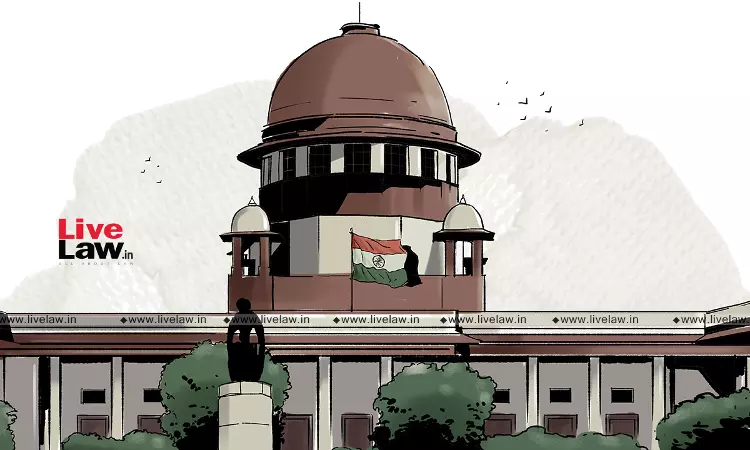- Home
- /
- Top Stories
- /
- Caste Census : A Look Back At...
Caste Census : A Look Back At Supreme Court's 2021 Order Declining To Direct Disclosure Of 2011 SECC Report
LIVELAW NEWS NETWORK
1 May 2025 5:07 PM IST
In a significant policy shift, the Central Government on Wednesday announced that the upcoming national census will include a caste-based enumeration. The last time India's population was counted by caste was before independence, in 1931. In 2021, a Socio-Economic and Caste Census (SECC) was carried out by the Union Government. However, its report was not published. In this context, it will...
In a significant policy shift, the Central Government on Wednesday announced that the upcoming national census will include a caste-based enumeration. The last time India's population was counted by caste was before independence, in 1931. In 2021, a Socio-Economic and Caste Census (SECC) was carried out by the Union Government. However, its report was not published.
In this context, it will be interesting to revisit an order passed by the Supreme Court in 2021, which declined to direct the Centre to publish the report of the Socio-Economic and Caste Census (SECC) 2011.
In 2021, the State of Maharashtra filed a writ petition under Article 32 of the Constitution seeking to direct the Union of India to disclose the Socio-Economic and Caste Census, 2011 (SECC), raw caste data of the Other Backward Classes (OBCs) in the State of Maharashtra. The petition was filed seemingly to get the data regarding the population of the OBCs to provide them with reservations in the local body elections. This move came after the Supreme Court's earlier judgment given in 2021, which read down provisions of a Maharashtra statute and held that OBC reservation in local bodies could only be granted upon fulfilling the "triple tests" - one of which involves the collection of empirical data to determine backwardness.
The Centre opposed Maharashtra's petition, saying that the SECC report was "fraught with mistakes" and was "inaccurate" and "unusable." The Centre also stated that the SECC was not linked to the general Census exercise and was not an OBC survey. It further stated that a caste wise enumeration in the census has been given up as a matter of policy from 1951 onwards.
In response to the Centre's stand that the SECC data was inaccurate, Maharashtra referred to a reply given by the Ministry of Home Affairs in the Parliament in response to the recommendations of the Parliamentary Committee, which claimed that "98.87% data on individuals' caste and religion is error free."
However, Centre said that the statement regarding 98.87% accuracy is either erroneous or was made in reference to some other particulars.
The Supreme Court, in December 2021, accepted the Centre's stand and refused to allow Maharashtra's demand. When the Government on affidavit stated that the SECC data is inaccurate and unusable, no mandamus can be issued to them to publish it, the Court stated. The Court said that such a direction would lead to "more confusion and uncertainty."
A bench comprising Justice AM Khanwilkar and Justice CT Ravikumar observed :
"The fact remains that the affidavit filed before this Court emphatically states that the data as collated is not accurate and is unusable for any purpose whatsoever. If that is the stand taken by the respondents, we fail to understand as to how mandamus can be issued to the respondents and to permit the State of Maharashtra, petitioner before this Court, to use that data for any purpose much less for reserving seats for OBC in local bodies in the State. Such direction, if issued, would lead to more confusion and uncertainty."
The Court further said that merely because the State is obligated to carry out triple-tests before providing OBC reservation, the Union cannot be compelled to reveal a report, which they themselves have described as inaccurate. The Court stated that Maharashtra cannot be allowed to use the SECC data for the purpose of reservation in local body elections.

